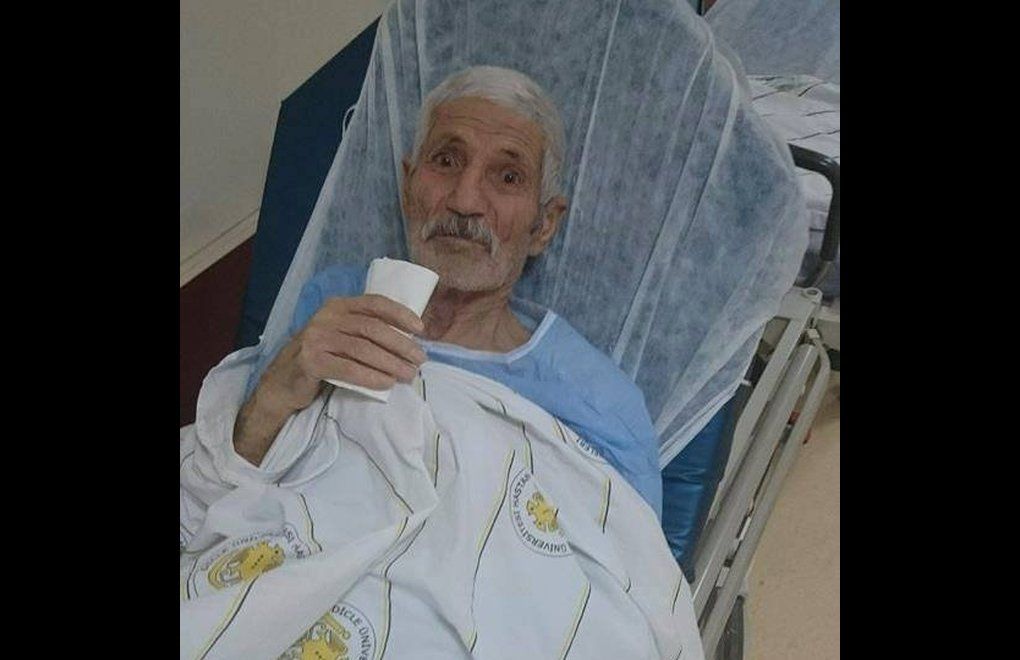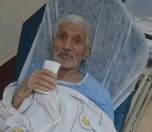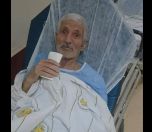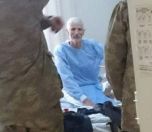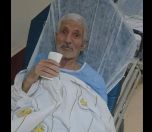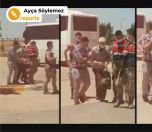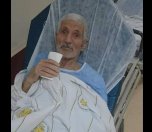Click to read the article in Turkish / Kurdish
The Forensic Medicine Institution has unanimously concluded that 83-year-old seriously ill prisoner Mehmet Emin Özkan can stay in prison.
Arrested in the Diyarbakır Type D Closed Prison, Özkan was referred to the Forensic Medicine Institution in İstanbul on June 27.
83-year-old Mehmet Emin Özkan, throughout his twenty-six years behind bars, had five heart attacks. He now also suffers from Alzheimer, aneurysm, blood pressure problems and goitre as well as kidney and intestinal disorders. He has lost his sense of hearing and sight to a considerable extent and cannot meet his personal needs on his own.
As reported by Gülcan Dereli from daily Yeni Yaşam, despite these health problems, the Institution has concluded that he can stay in prison.
CLICK - 'Tomorrow may be too late for Mehmet Emin Özkan'
'No marked pathological features observed'
According to the related report of the Forensic Medicine Institution, Mehmet Emin Özkan was examined on June 28, 2021. The report has indicated that "during his medical examination and neurological tests, Mehmet Emin Özkan completely fulfilled the motor orders; however, when he was asked questions, including his identifying information, he answered, 'I don't know'."
The report of the Institution has concluded that "in the medical examinations, no marked pathological features were observed."
The report has said that "when his cranial magnetic resonance imaging dated June 25, 2021 was examined at the Institution, no parenchymal pathology, except for the findings suiting his age, were diagnosed."
Accordingly, the Forensic Medicine Institution in İstanbul has unanimously decided that Mehmet Emin Özkan be kept and monitored in Type R(ehabilitation) prison conditions for a month and afterwards an opinion will be expressed by the Institution in the light of the monitoring report to be sent to the Institution about the daily routine and vital activities of Özkan.
He 'doesn't know' as he cannot speak Turkish
Emin Çoban, a lawyer from the Diyarbakır Bar Association, has said that Mehmet Emin Özkan answered the questions with "I don't know" because he cannot speak Turkish. The report of the Forensic Medicine Institution has not indicated that Özkan does not know Turkish or that no Kurdish interpreter was present during the related medical examinations.
Lawyer Çoban has told Yeni Yaşam the following:
"In 2013, I started doing my law apprenticeship with Serdar Çelebi. From time to time, I would visit his clients in the Diyarbakır Type D Prison.
"One of the people that we visited was Mehmet Emin Özkan. When I first saw him, I asked myself, 'Why is a person at that age here?' We attended his hearing at the Adana 7th High Criminal Court together.
"Mehmet Emin Özkan attended the hearing via the Audio and Visual Information System (SEGBİS) and he could even go there with help. He doesn't know the technological devices, he doesn't know where to speak, he is a person who doesn't know Turkish.
"As there was no one to interpret at that time in Adana, the court board allowed me to interpret. Following the statements of the lawyers, the court board wanted to listen to him. He was asking, 'Why am I still in prison, why was I given a sentence? I don't know why I am here'."
'He can hardly walk, but he is handcuffed'
Çoban has noted that Mehmet Emin Özkan had serious health problems even back then: "He was having difficulty expressing himself. He didn't know Turkish and was having a problem with hearing. As he was not at court in person, his right of defense was being restricted. His continued imprisonment is the greatest aggrievement while there is so much evidence indicating that he did not commit the crime and the crime was committed by others."
Referring to his situation as a "humanitarian plight", lawyer Çoban has said, "This person is taken to the hospital in handcuffs. There is the law, albeit being bad. The ones who would flee or hurt others are handcuffed. There are gendarmerie and all those security measures around him."
Çoban has noted, "While this person can hardly walk, he is handcuffed. This is a degrading treatment. Moreover, handcuffing a person who has lost 90 percent of his bodily functions is maltreatment." (AS/SD)




